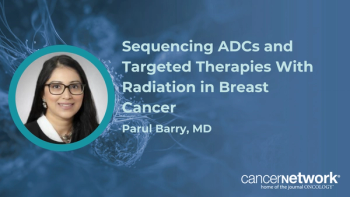
Nina Shah, MD, Shares Key Takeaways From Phase 2 KarMMa Trial Sub-Analysis of Ide-Cel in R/R Multiple Myeloma
Nina Shah, MD, spoke about her key takeaways from a sub-analysis of the phase 2 KarMMa trial assessing correlates of complete response among those treated with idecabtagene vicleucel in relapsed/refractory multiple myeloma.
Nina Shah, MD, a hematologist oncologist from University of California, San Francisco Health, spoke with CancerNetwork® at the
Transcript:
What we know from the research that we’ll be presenting this year, is that patients who ended up getting a CR had some interesting correlative outcomes from their baseline values. We [spoke] about baseline values at lymphodepletion. We know that there are various factors that yielded a significant correlation with CR in multivariate analysis, including having IgH [immunohistochemistry] heavy chain disease, serum BCMA level, and higher INR. In a positive direction, higher vector copy number was associated with their better outcomes.
These are probably things related to disease burden, in the first part where higher disease burden correlates with [worse] outcomes. On the flip side, the vector copy number probably correlates better with T-cell health. What we can think about for the patients who are going on to CAR T-cell therapy specifically with ide-cel [is that] maybe the best patients are those who are progressing but maybe not blowing up with the disease. Maybe we shouldn’t wait until line 6, 7 and 8 to use this, but rather as soon as they’re progressing on that fourth line to get them quickly in for a apheresis and then, ultimately, for their CAR T-cell therapy. That might help both aspects: decreased tumor burden going into this therapy and better T-cell health.
Reference
Shah N, Munshi N, Berdeja JG, et al. Baseline correlates of complete response to idecabtagene vicleucel (ide-cel, bb2121), a BCMA-directed CAR T cell therapy in patients with relapsed and refractory multiple myeloma (RRMM): subanalysis of the KarMMa trial. Presented at the 2022 Tandem Meetings; April 22-26, 2022; Salt Lake City, UT. Poster 223.
Newsletter
Stay up to date on recent advances in the multidisciplinary approach to cancer.






































